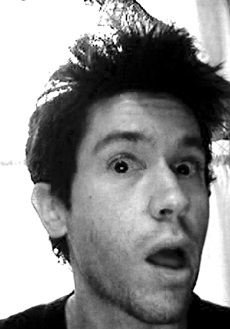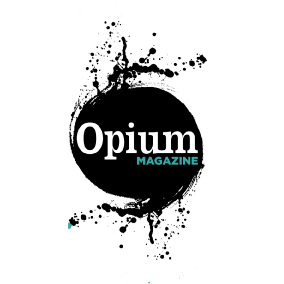 Opium Magazine has started a group on Fictionaut and I like asking Todd questions so I thought I would bother him via Google chat. I also like seeing him person because he is very good-looking and always wears a suit, and has a girlfriend who is not me. Taken, ladies, he is taken.
Opium Magazine has started a group on Fictionaut and I like asking Todd questions so I thought I would bother him via Google chat. I also like seeing him person because he is very good-looking and always wears a suit, and has a girlfriend who is not me. Taken, ladies, he is taken.
Opium has been running for nine years and has published everyone from Etgar Keret to Amy Bender to Chuck Close to Art Spiegelman. In addition to the print side, are the online issues. Which have averaged three stories per week, also for nine years. Then there is the Literary Death Match, which is when authors from all walks of journals, publishing houses, collectives and websites are brought together to read in friendly comedic competition. “The pen is mightier than the sword and ink will spill,” as it were.
In addition to ambitious, Todd is also a fiction writer, both long and short form with three novels under his belt and in the works. He is also a fellow Aquarius. Again, I really didn’t care about Fictionaut for this one, I just wanted to flirt with Todd over the computer.
Me (Nicolle Elizabeth for Fictionaut): Mini-wheat to Roman Candle come in and sparkle Roman Candle. Hi Todd. How’s things? Please answer that in a numerical list of three.
Todd: 1. good 2. well 3. I don’t get this question.
What is Opium Magazine?
Yawn. Try again!
What is Literary Death Match?
Opium Magazine is a literary humor publication that boasts delightful design alongside its wide-ranging content. The website has been updated daily since its debut in 2001, and the print magazine, designed by David Barringer, has been published semi-annually since August 2005. Featured artists include Etgar Keret, Aimee Bender, Chuck Close, Jack Handey, Vik Muniz, Neil Labute, Daniel Handler, Art Spiegelman and more. Opium‘s Literary Death Match is a competitive, humor-centric reading series that features four readers (who represent print and online literary concerns) in an edge-of-your-seat read-off, all critiqued by three all-star judges. Regularly produced in New York City and San Francisco (and being pitched as a TV show), each live event marries the literary and performative aspects of Def Poetry Jam, the rapier-witted quips of American Idol‘s judging (without the meanness), and the ridiculousness and hilarity of Double Dare.
Is Opium‘s main focus in publishing humor content, or do serious pieces also run? Not that comedy isn’t serious. It is.
We run it all.
Fictionaut is (as of late) an online focused community though who knows someday I bet these interviews with go in a print anthology 100 years from now. Point: does Opium run different content online than in print?
Absolutely. In fact, I think only one story has crossed over from online to print, and that was a story by Kim Chinquee that’s about 55 words long, as is one of the best things we’ve ever published (that was in Opium3).
How does LDM (Literary Death Match) utilize the Internet to reach readers/LDM go-ers?
It occurred to me today, when I was chatting with one of the judges that will be part of our LDM Baltimore debut on Jan. 30 that the LDM is really about awareness. Meaning, the LDM grows the awareness of Opium. It’s an interesting strategy, and one that’s definitely worked. When we launch a new issue, it releases at LDM events across the country. That means people who are coming because there’s a reader representing Publishing Genius or Quick Fiction or Paris Review becomes aware of Opium
Don’t you love publishing genius? I love them.
Yes, PubGenius dudes are great!
Okay so if LDM is a tool for Opium and Opium online runs different content than Opium (print), is it safe to say the crux here is Opium Mag in print itself? What is the future for Opium Mag? I would personally like to see a President reading it at a Sate of the Union address, myself. That question actually was how many Opiums run in print? You told me once when we did the NY Press interview but I don’t have that notebook with me, sorry i am so bad at this.
We have a 2,000 print run, per issue. We’re aiming to double that this year. And because of that time spent, we want to make it everything it can be, which is always changing. As for DC, we’re working on doing a Literary Death Match at the White House. It’s one of our dreams, now that we have a president that can read.
How many submissions does Opium get — what is your acceptance rate?
We get a ton of submissions. I’d say we accept 4 out of 100 for print (but we love so much to accept things!), and 15 out of 100 for online. That’s a ballpark guess.
How many writers have been published in Opium to date? I bet they ALL ARE ON FICTIONAUT.
Man, a number? It would make sense to know that, wouldn’t it. We average about 30 per print magazine. And we’ve been online for almost nine years, and have published on average about 3 stories a week. So, 52 x 3 x 9= Minus repeat authors, so -50. And that’s how many.
Does LDM only ask Opium authors to participate?
Hardly ever. Our system is to invite literary entities (magazines, indie publishers, other reader series, even) to send reader-reps. So, for Boston’s event, it’s Open Letter v. Night Train v. Four Stories v. Handsome. We love that model. Opium’s just the organizing body.
It’s like giving LDM’s viewers a cool chance to get exposure to different outfits within the lit community. Much like Fictionaut. I get that and I love it. What cities is LDM going to be in this year upcoming?
We do, too. We’ve announced:
January:
13th: Boston (Enormous Room)
14th: Chicago (Fizz)
15th: Dallas (Dallas Museum of Art)
21st: New York City (Bowery Poetry Club)
30th: Baltimore (The Windup Space)
February:
12th: San Francisco (Elbo Room)
18th: New York City (Bowery Poetry Club)
24th: London (The Book Club)
March:
(pending): Dublin (The Sugar Club)
Heart Tennessee Williams! When I was little I used to say, “Maggie the cat is back” for no reason other than i thought it was glamorous. 2. One time you said to me something to the effect of I’d throw myself in front of a bus if it got more people reading. 2a. Does that still apply? 3. How international is LDM now?
It will only apply, now, if my novel sells. It’s been international since last April, when we did Beijing. We’ve done London thrice, Beijing, Paris (I co-hosted in French!), and next up is Dublin.
JE PARLE FRANCAIS J’ADORE FRANCAIS. You should post some of your novel on Fictionaut I bet people would give great feedback. What are you reading right now? Your novel’s done, isnt it?
My novel is done. Though I’m taking back my book about world travel from my agent, to add Beirut, Petra, Amman, Tel Aviv and Jerusalem. I just finished The Ask by Sam Lipsyte and re-read Wells Towers’ Everything Ravaged, Everything Burned. Both had very positive effects on me. I just wrote my first short story in a year.
Gorgeous on the travel tip cities. Both excellent dudes to read. Do you sleep ever? Also was it weird to go back short fiction after having worked on longer works?
I sleep all the time, but Opium never really cut into my fiction before. But with the advent of the LDM, my fiction has taken a steep hit. It’s difficult, but it’s something I’ll work hard to undo in 2010. I do think it’s harder to write shorter works, now. I’ve written three books (the first was rejected, and now the two are ready), and I always tend to fold my short ideas into my longer work, now. I’m a writer before an editor in my mind, and want that to continue to be true (in my mind).
Nicolle Elizabeth checks in with Fictionaut Groups every Friday.
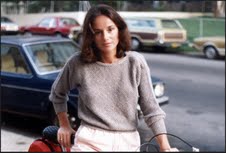 Susan Tepper
Susan Tepper
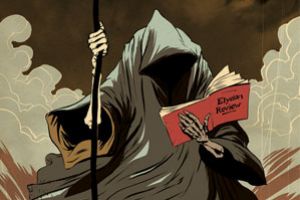




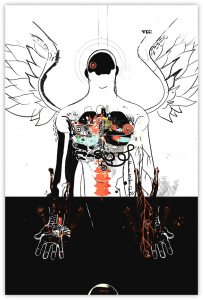
 He serves on the
He serves on the 